Events
Awaiting the Spring Festivities: The Annual General Assembly of the Members of the Lithuanian Academy of Sciences
08 04 2024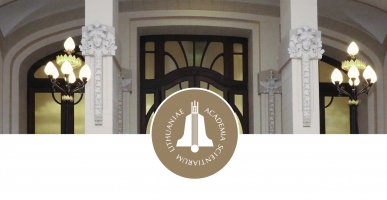
On 26 March 2024, the Lithuanian Academy of Sciences held its annual general assembly, which, along with the Academy’s members, was attended by the winners of the competitions organised by the Academy, winners of other awards, Simona Bieliūnė, the vice-mayor of the Vilnius City Municipality, guests from the State Commission of the Lithuanian Language, the leadership of the Wroblewski Library of the Lithuanian Academy of Sciences, the staff of the Academy, and other guests.
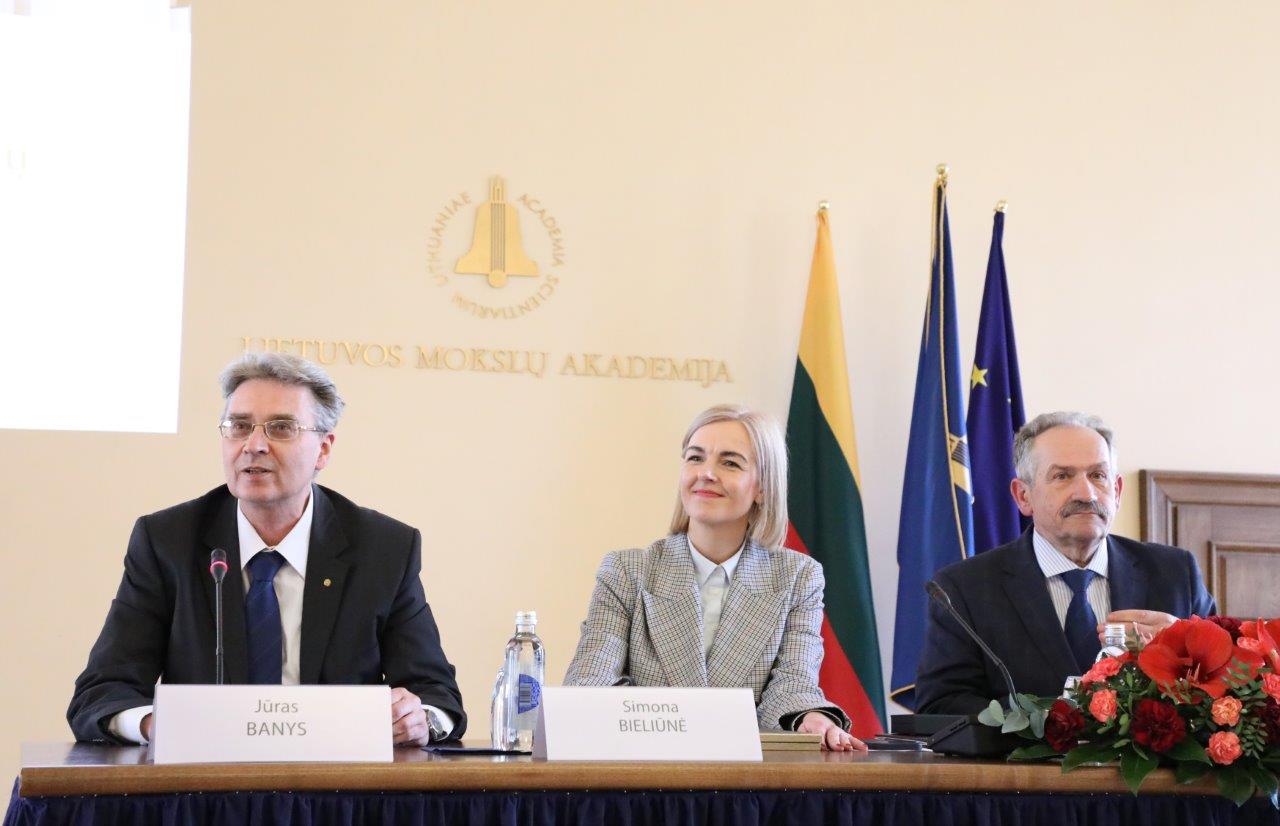
Following the good example of Kaunas, the winners of the Vilnius City Science Prizes were announced for the first time this year.
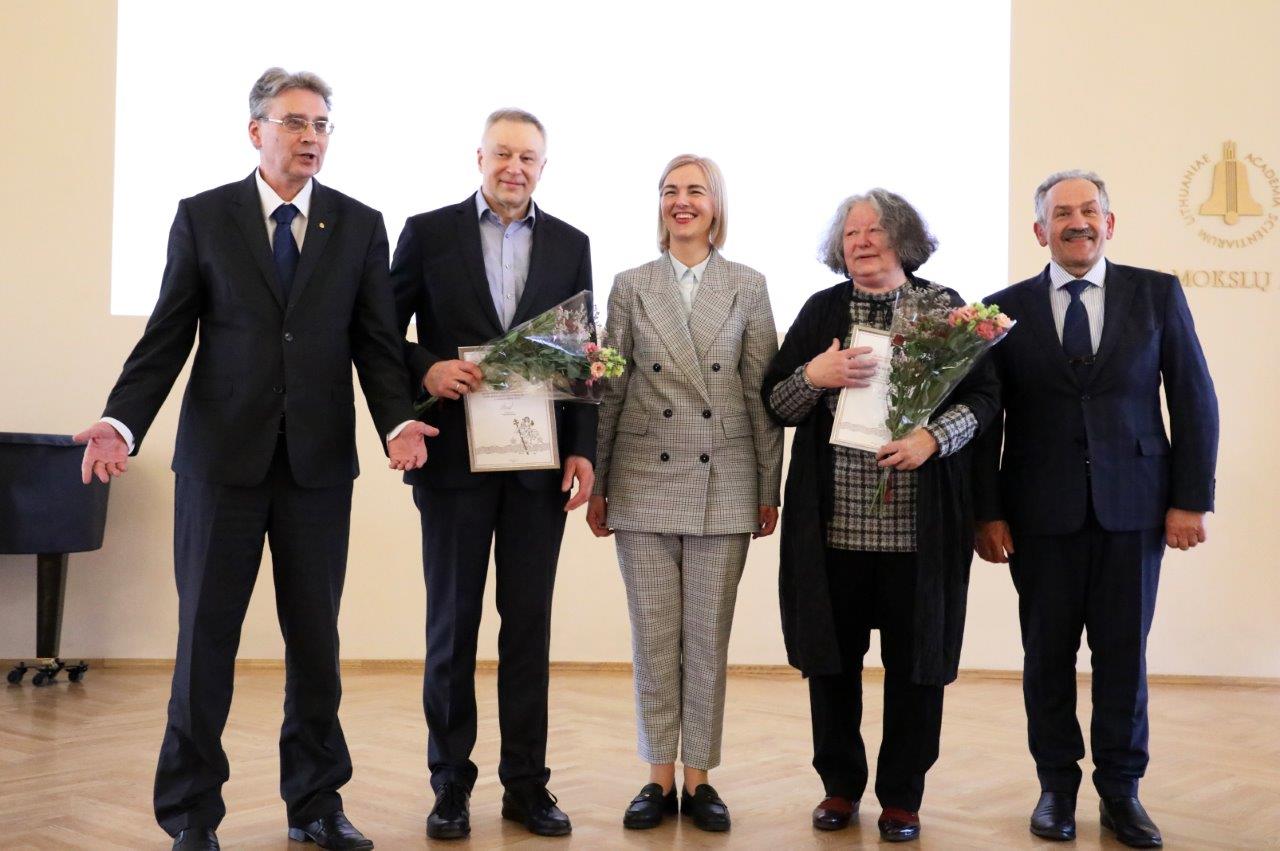
The first recipients of these prizes were Dr Rūta Janonienė for her contribution to the scholarship in the field of humanities and social sciences and Prof. Česlovas Venclovas for his outstanding work in the field of natural, technological, medical, and health sciences. Both recipients are members of the Lithuanian Academy of Sciences. These prizes are also a tribute to their contribution to the dissemination of scholarly knowledge. In her acceptance speech, Dr Janonienė spoke about her explorations of Vilnius Cathedral, the Church of St Francis and St Bernard, the palaces of Verkiai and Sapiegos, and numerous other objects and noted that each of them is unique. She said she was resolved to continue her work and was pleased she managed to rally a close-knit team of researchers. She thanked the restorers of Vilnius for bringing architectural monuments back to life. Prof. Česlovas Venclovas said that the prize meant recognition of his whole team. The scientists in his research group study life using computer methods. In other words, scientists all over the world are working for bioinformaticians. That is why such unique experiments as studies into the most dangerous viruses can be conducted on a computer. Evolution as such can only be studies by computer methods. Discovering genetic and protein links between humans and bacteria is often astonishing. Prof. Venclovas closed his acceptance speech with an assurance that he would continue to contribute to the promotion of Vilnius University and the city of Vilnius.
Simona Bieliūnė, the vice-mayor of Vilnius, congratulated the recipients of the prizes and said that such communication with researchers was a new format. She was pleased that the Lithuanian Academy of Sciences had encouraged a dialogue between the municipality and the researchers who do so much for the city and its residents. ‘These prizes are a very deliberate step of ours, and we are prepared to express our gratitude to those who deserve it every year,’ she said.
The winners of the prizes established by the Lithuanian Academy of Sciences and named after outstanding Lithuanian scientists were honoured next. The chairs of the juries – academicians Vytautas Nekrošius, Aurelija Žvirblienė, Jūratė Kriaučiūnienė, and Vidmantas Stanys – introduced the winners of the Simonas Daukantas (history), Vladas Lašas (medicine), Juozas Dalinkevičius (geosciences), and Povilas Matulionis (forestry sciences) prizes.
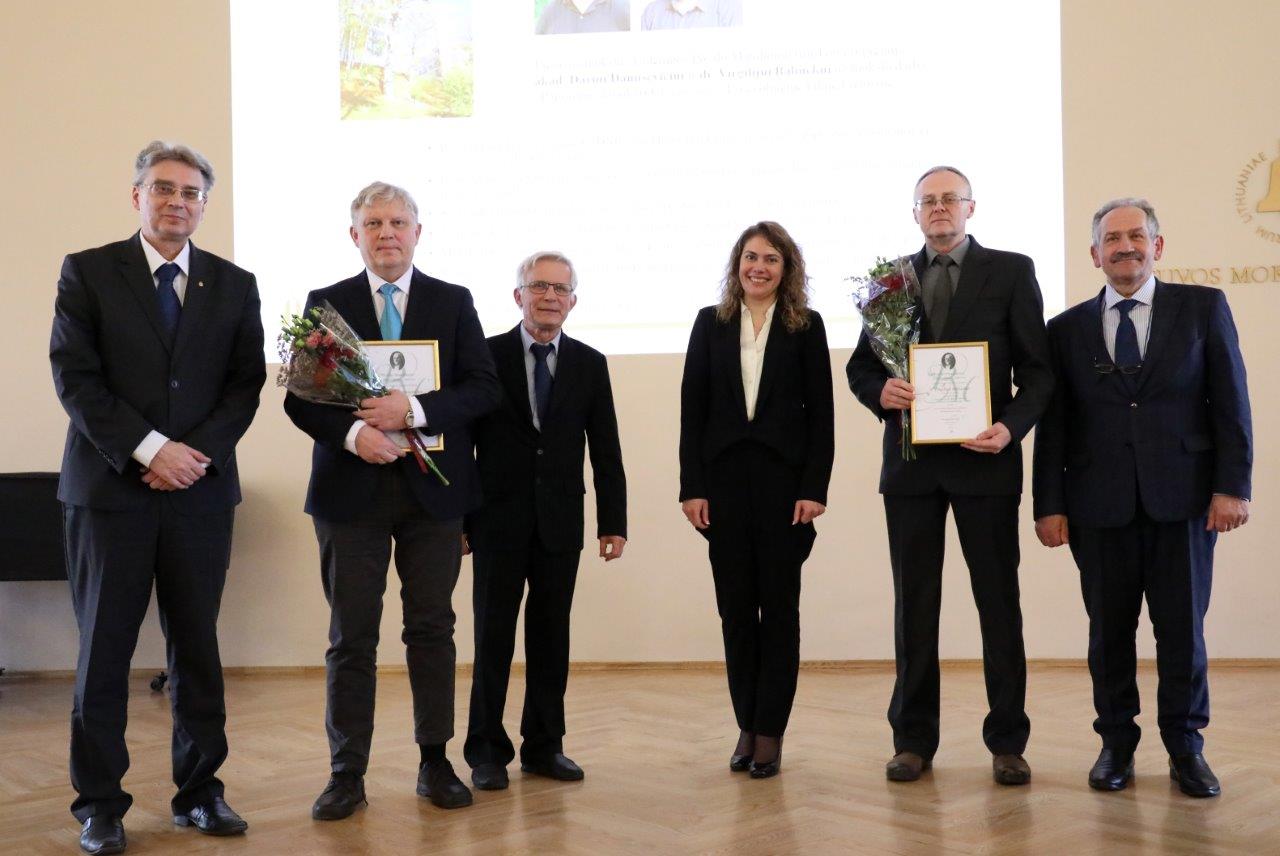
Prof. Dr Saulius Pivoras of Vytautas Magnus University was awarded the Simonas Daukantas Prize (history) for his monograph ‘Virtus Lituana. Political Thought in the Historiography of Simonas Daukantas.’ The laureate stressed that he wanted to convey, in today's language, what Daukantas really wanted to say between the lines, especially in analysing his political ideas, which turned out to be political thoughts of a high international level. For example, Daukantas wrote that ‘the human always wants to live free.’ It is a fundamental thought on the importance of freedom for the individual and society.
Academician Prof. Vilmantė Borutaitė (Lithuanian University of Health Sciences) was awarded the Vladas Lašas Prize (medicine) for her research cycle ‘Mitochondrial Functions and their Links to Health and Cardiac and Brain Pathologies.’ She spoke of her work in fundamental medicine and her research into the mechanisms of cell death. In recent years, her group has been looking into the causes of neuronal death. Mitochondria have been shown to be not only the powerhouses of the cell, but also regulate the cell death process. Prof. Borutaitė also talked about the strategy of redirection when medications are adapted to treat new diseases. She has discovered that diabetes medicines can act on mitochondria to protect brain cells in the event of a stroke.
The Juozas Dalinkevičius Prize (geosciences) went to the academician Prof. Robert Mokrik for his series of papers ‘Models for Palaeo-Hydrological Reconstructions of the Formation of the Subsurface Hydrosphere in the Baltic Sedimentary Basin.’ In his acceptance speech, he pointed out that it took two billion years for the Earth's hydrosphere to emerge and reassured the audience that even with a changing climate, the amount of water is unlikely to change substantially.
Academician Darius Danusevičius and Dr Virgilijus Baliuckas received the Povilas Matulionis Prize (forestry sciences) for their study ‘Evolutionary Origin of the Peduncular Oak in Lithuania.’ Thanks to them, we know how the oak came to Lithuania. The scientists noted that genetic studies into old oaks led them to the discovery of an entire world of oak trees, which deserve our special attention because we have very few percent of oak trees left. The researchers want to launch a programme to restore oaks and their genetic diversity.
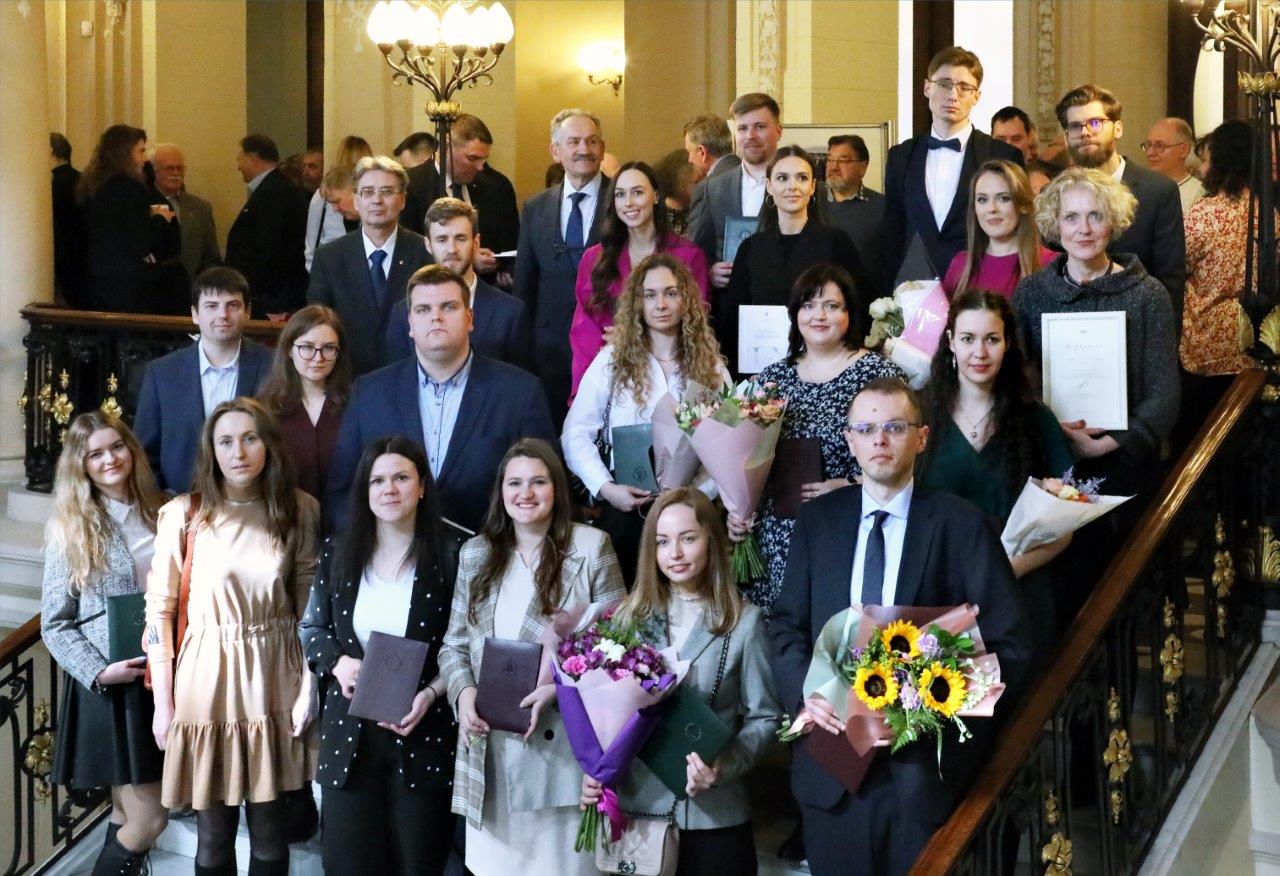
The winners of the Young Scientist and Doctoral Student Research Work and the Higher Education Student Research Work competitions were announced by Prof. Zenonas Dabkevičius, the vice president, and Prof. Jūras Banys, the president of the Lithuanian Academy of Sciences, who presented the winners with diplomas and letters of commendation. The names of the winners can be found here.
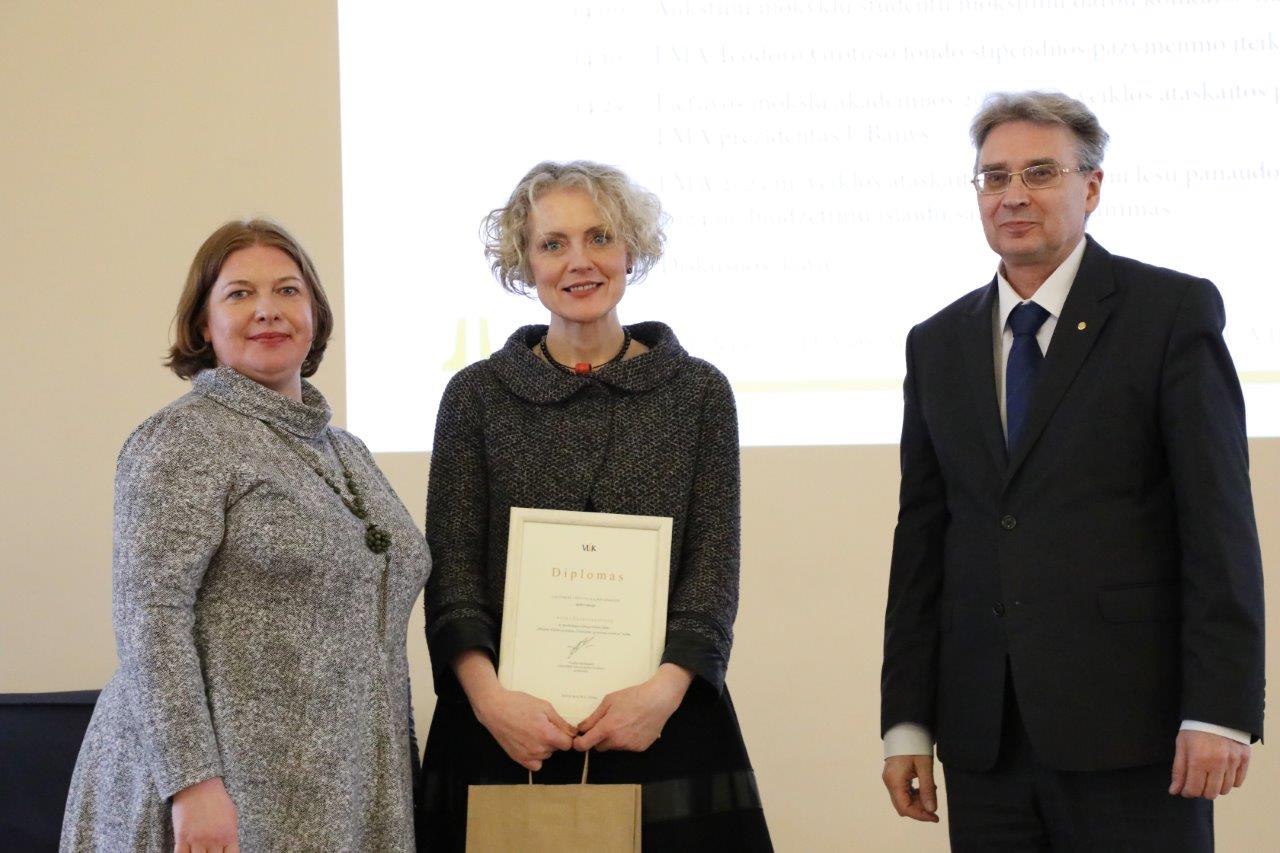 |
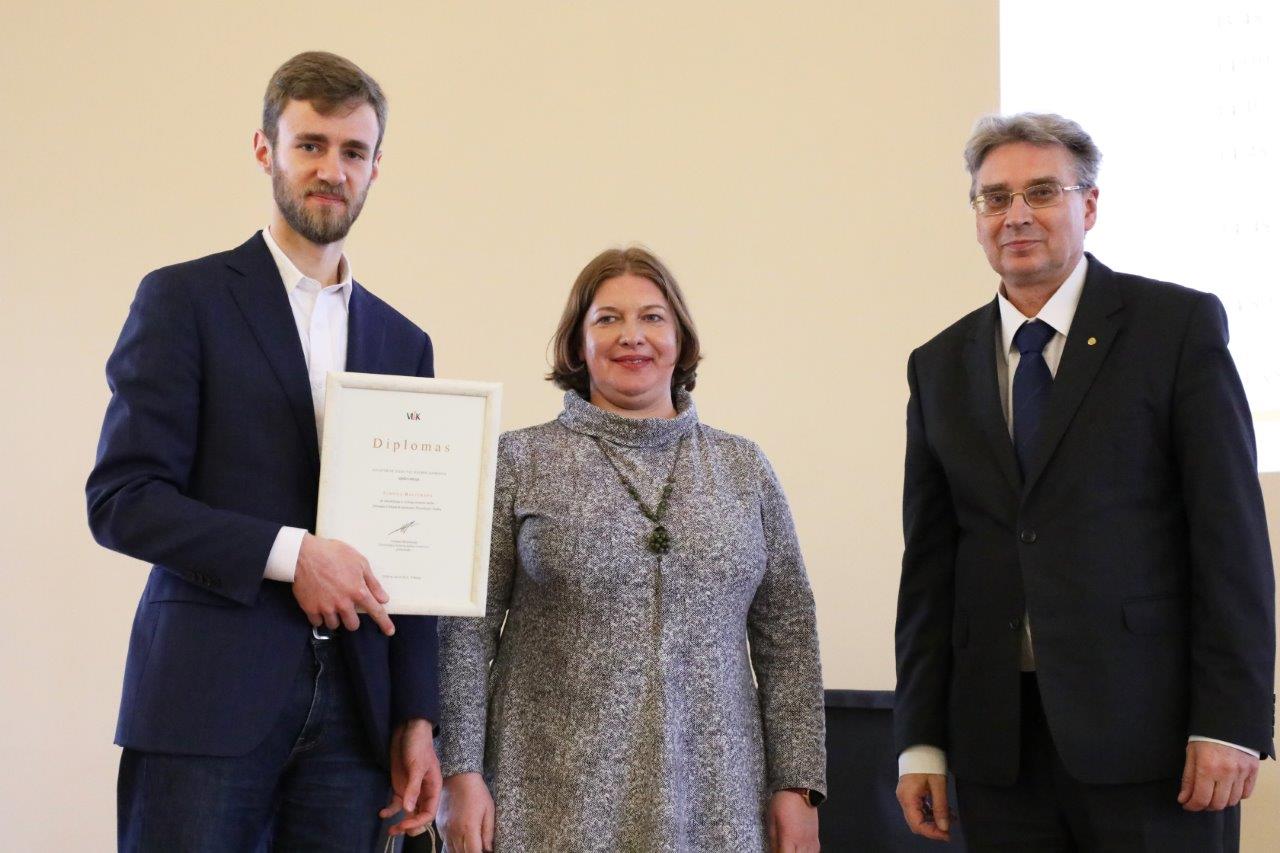 |
After that, Prof. Banys invited Dr Violeta Meiliūnaitė, the chair of the State Commission of the Lithuanian Language, to announce the commission’s awards to the authors of the research papers submitted for the 2023 competitions of the Lithuanian Academy of Sciences for the most correct language use and style. The winners were Simonas Baliukonis (Vilnius University) for his work ‘The Monad and the Dyad in the Philosophy of Xenocrates’ and Aušra Česnulevičienė (Vytautas Magnus University) for her work ‘The Artistic Dissemination Project “The Čiurlionis: A Life in Music”.’ According to Dr Meiliūnaitė, the commission evaluates the language in which scholars will teach and the example they will set for their students. The commission sees the awards as an investment that encourages the laureates to pass on the same excellent Lithuanian language to their students.
With the marathon of prizes and awards over, Prof. Jūras Banys presented the annual report of the Lithuanian Academy of Sciences for 2023. He pointed out that 156 events were organised with partners during the year. Work is underway to ensure that political decisions are based on science as often as possible. In 2023, agreements were signed with the Berlin-Brandenburg Academy of Sciences and Humanities, the National Academy of Sciences of the Republic of Kazakhstan, and the Academy of Sciences of Albania. Seven resolutions were issued. The magazine IQ and the news and media website alfa.lt regularly publish articles by the members of the Lithuanian Academy of Sciences for the general public. Members of the Young Academy of the Lithuanian Academy of Sciences are active and successful and have already won international awards. The Young Academy has signed the Charter for Academic Freedom with other young academies and organises international conferences. Members of the Committee on the Future of the Seimas visited the Lithuanian Academy of Sciences to discuss artificial intelligence. A conference was organised to commemorate the 35th anniversary of the founding of the Sąjūdis (the Reform Movement of Lithuania), and many other events took place.
Prof. Leonas Valkūnas, the head of the Division of Mathematical, Physical, and Chemical Sciences of the Lithuanian Academy of Sciences, spoke about the activities of the Foundation for Cooperation and Research Support, which focused on support for Ukraine. Two generators and two servers were purchased for the National Academy of Sciences of Ukraine.
The last item of the agenda of the annual assembly was voting for the activity report of the Lithuanian Academy of Sciences for 2023, the report on the use of budget funds, and the estimates of budget expenditure for 2024. They were approved unanimously. At the end of the meeting, President Jūras Banys wished a happy upcoming Easter and invited the leaders of the Academy and the winners of the competitions for a joint photo.
Prepared by Dr Rolandas Maskoliūnas, chief specialist for public relations of the Lithuanian Academy of Sciences
Translated by Diana Barnard
